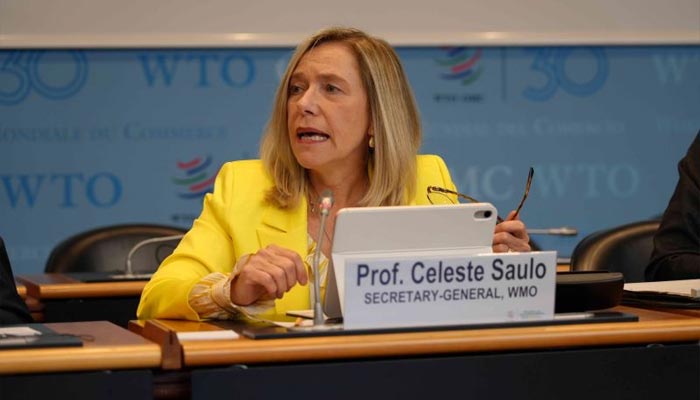The annual warming of 1.55 degrees Celsius recorded in 2024 does not mean that the crucial Paris Agreement has been breached, rather it comes as a stark warning.
That there is a need to step up climate action, said WMO Secretary-General Professor Celeste Saulo. In an exclusive interview to CNN on the sidelines of the 150th commemoration event of the India Meteorological Organization (IMD) in New Delhi, Saulo reiterated the urgency to protect the Paris Agreement – under which nations committed to limit the long-term global temperature rise to 1.5℃, and well below 2℃.
“One year above 1.5℃ does not mean that we have breached the 2015 Paris Agreement because that is based on decadal averages. But, at the same time, we need to realise that it is a warning for us, an alert. We are making sure to call the attention of all decision-makers, governments and communities to do stronger climate action,” she told CNN.
The World Meteorological Organization (WMO) – the specialised agency of the United Nations (UN) for coordinating global climate and weather observations as well as monitoring climate change – has just declared 2024 as the hottest year on record globally.
“We have likely seen the first calendar year with a global mean temperature of more than 1.5℃ above the 1850-1900 average,” the WMO announced last week.
Saulo, who is the first woman and South American to head the organisation, also expressed concerns over the spate of extreme weather triggered by rising temperatures across the world. Asked about the recent Los Angeles wildfires, which have burned through tens of thousands of acres, displaced over a lakh people and incinerated homes, she pointed out that the science is quite clear.
“On the one hand, with the recent science related to climate attribution, we have to be completely sure that a phenomenon is explained by climate change. But, at the same time, there is clear evidence that extreme weather events are increasing, and they are becoming more severe in terms of intensity, frequency. So what we are really experiencing is quite clear,” she said.
Elaborating on the need for more research, she further said climate attribution studies can provide more scientific support for the claims made. “But, we must not lose sight of the fact that there is clear evidence and manifestations that extreme weather is becoming more and more extreme,” she added.
‘MORE EMPHASIS ON EARLY WARNINGS’
At present, the WMO’s top strategic priority is to ensure that everyone on Earth is protected by early warning systems, and its focus area is in India as well.
“WMO is working in strong coordination with national hydrological and meteorological services trying to improve the adaptation strategy and helping the countries build their early warning systems. We cannot avoid the occurrence of extreme weather events, but what we can do is to protect our population, their assets and means of living. That is why we are laying more emphasis on early warnings because it is something we can actually do, and save lives moving forward,” said Saulo, who has previously served as the director of National Meteorological Service in Argentina since 2014 and as a former vice-president of WMO.

